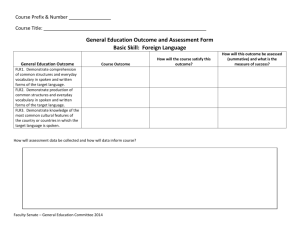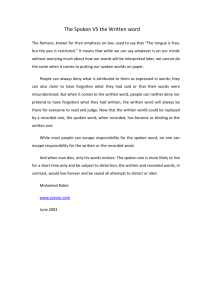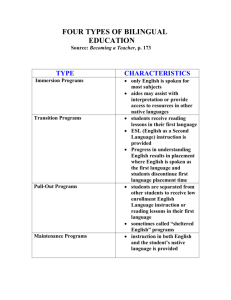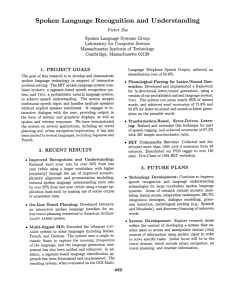Research and Development for Spoken Language Systems
advertisement
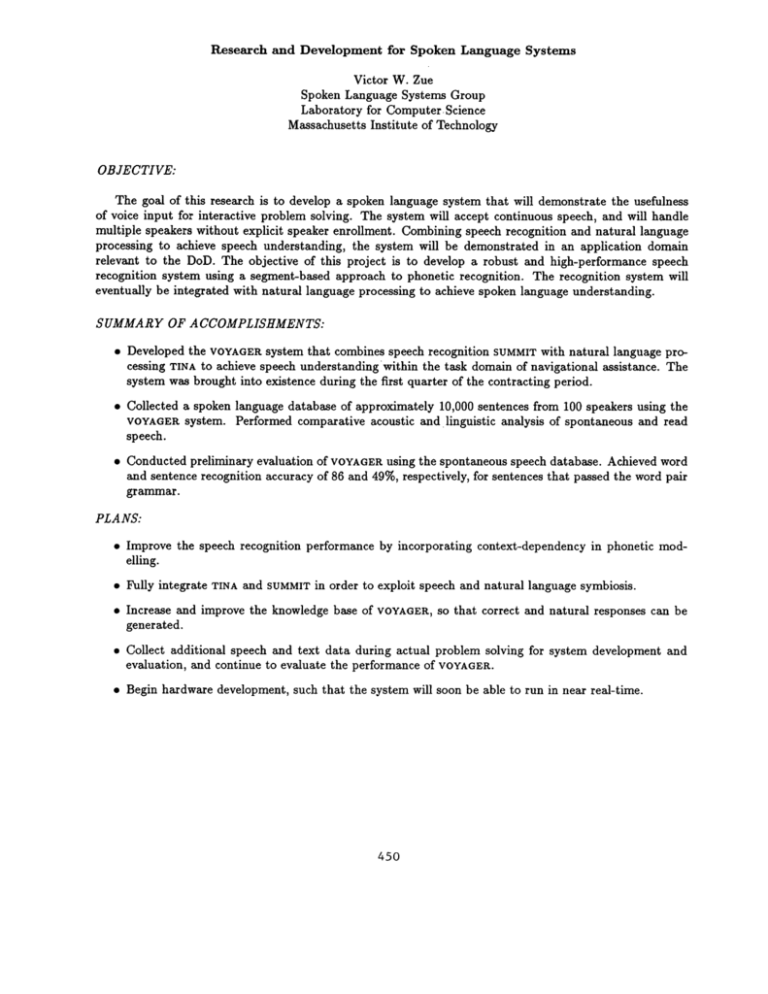
R e s e a r c h a n d D e v e l o p m e n t for Spoken L a n g u a g e S y s t e m s Victor W. Zue Spoken Language Systems Group Laboratory for Computer Science Massachusetts Institute of Technology OBJECTIVE: The goal of this research is to develop a spoken language system that will demonstrate the usefulness of voice input for interactive problem solving. The system will accept continuous speech, and will handle multiple speakers without explicit speaker enrollment. Combining speech recognition and natural language processing to achieve speech understanding, the system will be demonstrated in an application domain relevant to the DoD. The objective of this project is to develop a robust and high-performance speech recognition system using a segment-based approach to phonetic recognition. The recognition system will eventually be integrated with natural language processing to achieve spoken language understanding. S U M M A R Y OF ACCOMPLISHMENTS: • Developed the VOYAGERsystem that combines speech recognition SUMMIT with natural language processing T I N A to achieve speech understandingwithin the task domain of navigational assistance. The system was brought into existence during the first quarter of the contracting period. • Collected a spoken language database of approximately 10,000 sentences from 100 speakers using the V O Y A G E R system. Performed comparative acoustic a n d linguistic analysis of spontaneous and read speech. • Conducted preliminary evaluation of VOYAGERusing the spontaneous speech database. Achieved word and sentence recognition accuracy of 86 and 49%, respectively, for sentences that passed the word pair grammar. PLANS: • Improve the speech recognition performance by incorporating context-dependency in phonetic modelling. • Fully integrate TINA and SUMMIT in order to exploit speech and natural language symbiosis. • Increase and improve the knowledge base of VOYAGER., SO that correct and natural responses can be generated. • Collect additional speech and text data during actual problem solving for system development and evaluation, and continue to evaluate the performance of VOYAGER. • Begin hardware development, such that the system will soon be able to run in near real-time. 450



